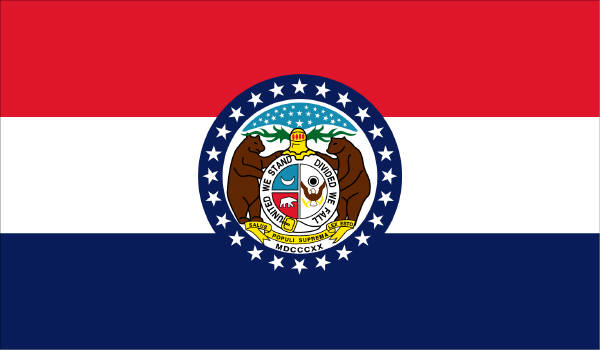Missouri Amendment 9, Require Citizenship for Foreign-Born Persons to Vote Measure (February 1924)
| Missouri Amendment 9 | |
|---|---|
| Election date |
|
| Topic Citizenship voting requirements and Election administration and governance |
|
| Status |
|
| Type Constitutional convention referral |
Origin |
Missouri Amendment 9 was on the ballot as a constitutional convention referral in Missouri on February 26, 1924. It was approved.
A "yes" vote supported amending the state constitution to require that foreign-born individuals must complete the full naturalization process and become U.S. citizens before being eligible to vote, rather than being allowed to vote after declaring their intent to become citizens, and prohibit persons defined as idiots or insane from voting. |
A "no" vote opposed amending the Missouri State Constitution to only allow full naturalized citizens to vote in elections and authorize examination of ballots in elections and Grand Jury investigations. |
Election results
|
Missouri Amendment 9 |
||||
|---|---|---|---|---|
| Result | Votes | Percentage | ||
| 175,580 | 53.48% | |||
| No | 152,713 | 46.52% | ||
-
- Results are officially certified.
- Source
Text of measure
Ballot title
The ballot title for Amendment 9 was as follows:
| “ | Amendment No. 9- Article VIII.- Suffrage and Elections.- To substitute revised and amended Article VIII for present Article VIII and all sections thereof and amendments to the present Constitution relating to the same subject matter:- Regulates the exercise of the elective franchise and authorizes examination of ballots in election contests, in Grand Jury investigations and in the trial of civil and criminal cases in which violations of the election laws are at issue. | ” |
Path to the ballot
On August 2, 1921, voters approved a constitutional convention question. The convention convened on May 16, 1922, and adjourned on November 6, 1923. It was composed of two delegates from each of the 34 senatorial districts, along with 15 delegates elected at large. Rather than drafting an entirely new constitution, the convention decided to propose a series of 21 separate amendments.[1]
See also
External links
Footnotes
State of Missouri Jefferson City (capital) | |
|---|---|
| Elections |
What's on my ballot? | Elections in 2026 | How to vote | How to run for office | Ballot measures |
| Government |
Who represents me? | U.S. President | U.S. Congress | Federal courts | State executives | State legislature | State and local courts | Counties | Cities | School districts | Public policy |



